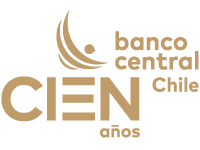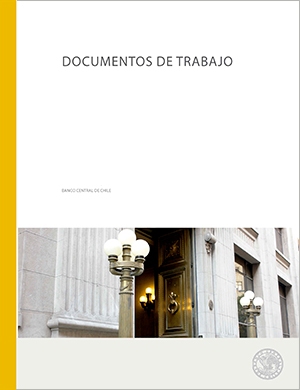Working papers N° 458: Copper Price, Fiscal Policy and Business Cycle in Chile
Publications
Working papers N° 458: Copper Price, Fiscal Policy and Business Cycle in Chile
Autor: Juan Pablo Medina , Claudio Soto
Description
This paper analyzes the impact of copper-price shocks on the Chilean business cycle from a general equilibrium perspective. Using a DSGE model, we compare the effects of transitory copper-price shocks under different fiscal rules. The results show that if the fiscal policy is conducted using a structural balance fiscal rule, such that the government saves most of the extra revenues from the higher copper price, then a copper price shock of 10% would increase output only by 0.05% and there would be a slight decrease in inflation. This last effect occurs due to a real appreciation of the exchange that compensates a slight increase in domestic goods inflation. In contrast, when fiscal policy is highly expansive, the same copper price increase implies an output expansion of up to 0.7%, an increase in inflation, and a real exchange rate appreciate of 0.2%. We show that the adoption of a flexible exchange rate regime would have contributed to isolate output (and inflation) from copper price shocks, although our quantification of the effect of this change in policy is small. We also show that if the structural balance fiscal rule lacks credibility, then a copper price shock would lead to much higher inflation than under full credibility.
Working papers N° 458: Copper Price, Fiscal Policy and Business Cycle in Chile
Boxes and graphics

